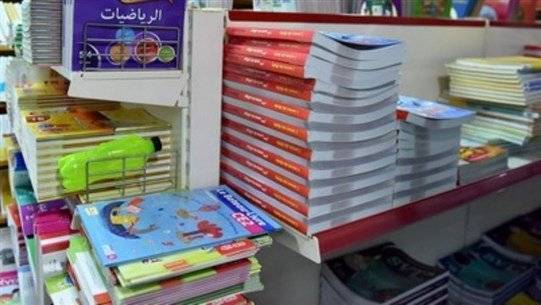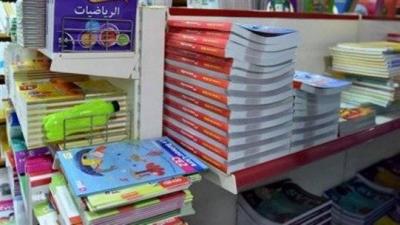The dollar has altered the concept of school from educational to commercial. This conclusion was reached by parents after entering a fierce struggle between private schools and libraries that have priced their goods in dollars, seeking profits at the expense of the student who grapples with transportation costs and searches for a way to reach school. The market was shaken again with the rise of the black dollar, as prices increased as soon as it crossed 36,000 Lebanese pounds, setting a new record that would change prices entirely. It's no surprise that the dollar game is at the school gates, where the cries of parents have risen, especially concerning book purchases, as the search for used books is ongoing; new ones have become available only to those who can afford them.
Book prices are based on the equivalent dollar rate and are accompanied by the school "custom" fee also priced in dollars. Private schools found their true opportunity amid the migration of students from public to private schools, contrary to what the Director General of Education said regarding fears of delays in the official school year's start due to strikes, while private schools have already begun.
Parents face more than one dilemma today. The first regards the exorbitant prices of books, with the cheapest book costing 400,000 pounds. The transportation costs represent a catastrophic scenario, as the minimum monthly expense per child reaches one million pounds. How can a family manage if they have three children when their parents' salaries do not exceed three million pounds? Parents today are not envied for their situation, as their circumstances are very harsh. According to Rania, a mother of three, she feels incapable of providing new books for her children, as their prices do not fit her budget. Additionally, she mentions that "the school imposes indirect taxes on us, from raising the price of the school uniform which has exceeded $15, to the sports uniform that cost the equivalent of the minimum wage, about $35, not to mention summer attire and other mandatory school requirements."
For a week now, Rania has been looking for used books, checking out borrowed book centers that have opened, hoping to find some. "But luck was not on my side; those who arrived earlier bought them, and those who delayed lost out." What concerns Rania the most is the transportation fee; she will incur more than three million pounds just for transport, which may increase with the rise in fuel prices. "How will we manage when my salary doesn't exceed four million pounds? What about the other school requirements?"
At the school gates, it seems that parental cries are growing louder, with many unable to afford books whose prices have increased 20 to 30 times. Let alone the uncontrolled book market, where there is no oversight; each school is "open for business," charging in dollars as long as regulation is absent. This situation has put Alia in a real predicament, where "the prices of the books set by the school are double those of the libraries abroad." She adds, "What the school used to request, I bought for less than half from abroad. Unfortunately, schools have turned into shops selling knowledge rather than fostering creativity. What's worse is that transportation has become a catastrophe; how can we bear it?"
Ibrahim, a minibus driver for students, does not hide this issue; he finds that this year's transportation is a loss-making venture. "It's true that it's costly for parents, but it's causing losses for us as well, especially with the steep increase in fuel prices. We are worried; how worried must the parents be? God help them."
There is nothing promising for the new academic year, as parents are "worried sick," especially since private schools have increased their tuition fees even before the school year began, citing "rising dollar prices," and they've set book prices based on the black dollar rate in a way that contravenes the law. They act as if they are the "Pharaoh of their time," capitalizing on the migration of students to them due to fears of disruptions in public schools, and they have begun imposing their unreasonable conditions, which parents reluctantly accept: "Do we leave our children on the street?" This is a real crisis that parents are living through today, caught between the hammer of private schools and the anvil of public schools, and between both, they are enduring high costs.




